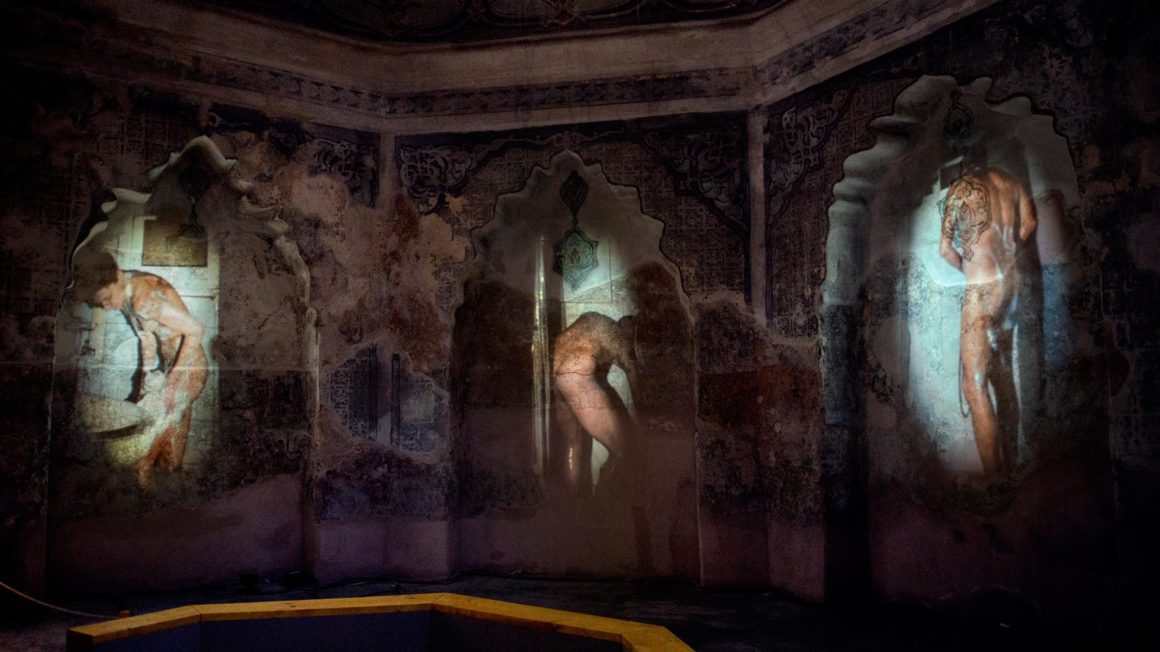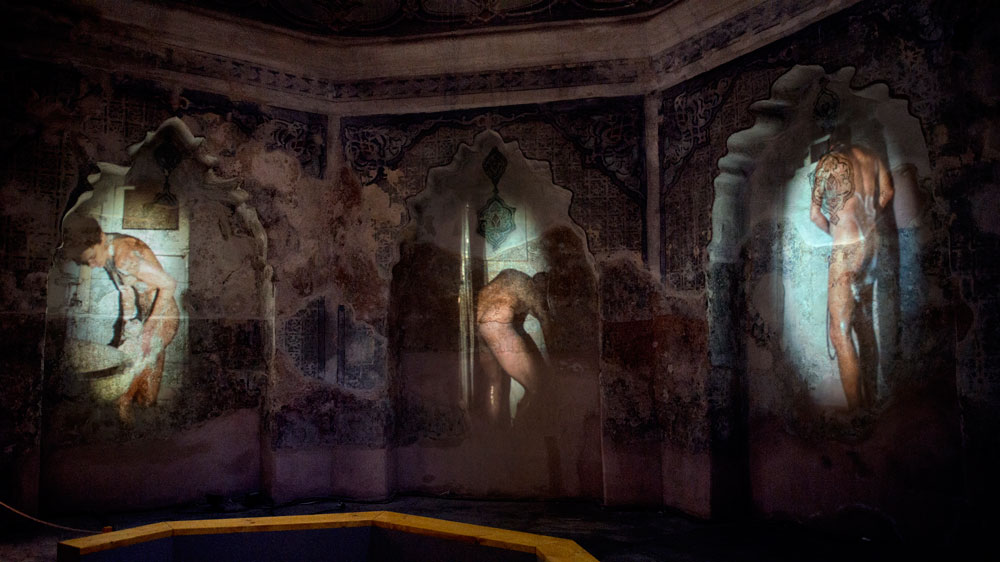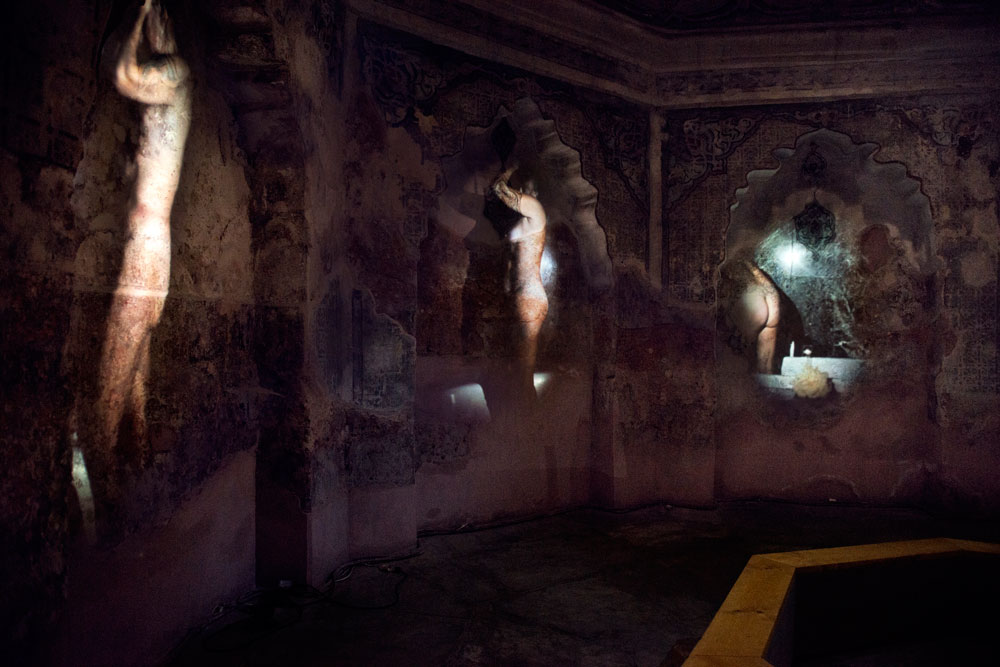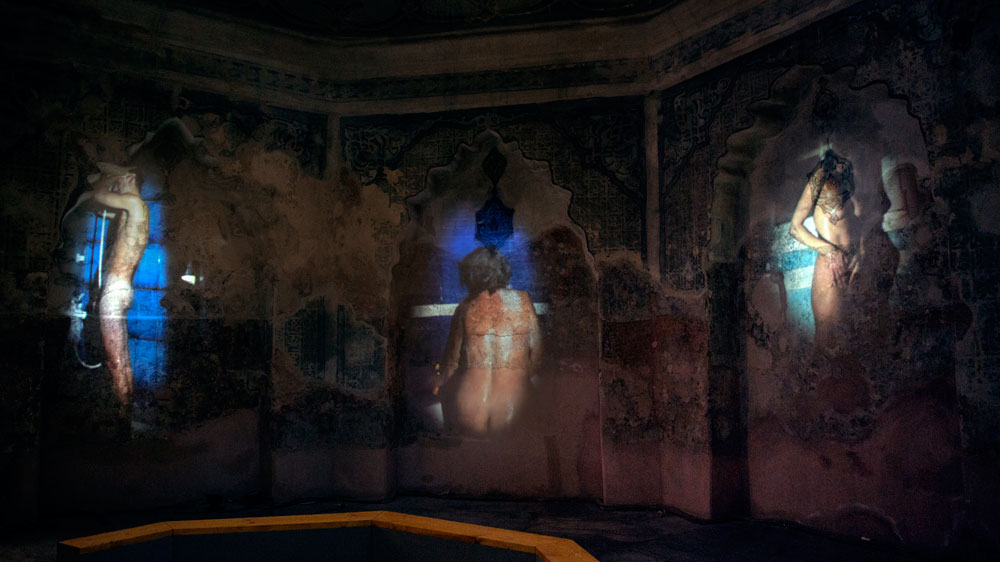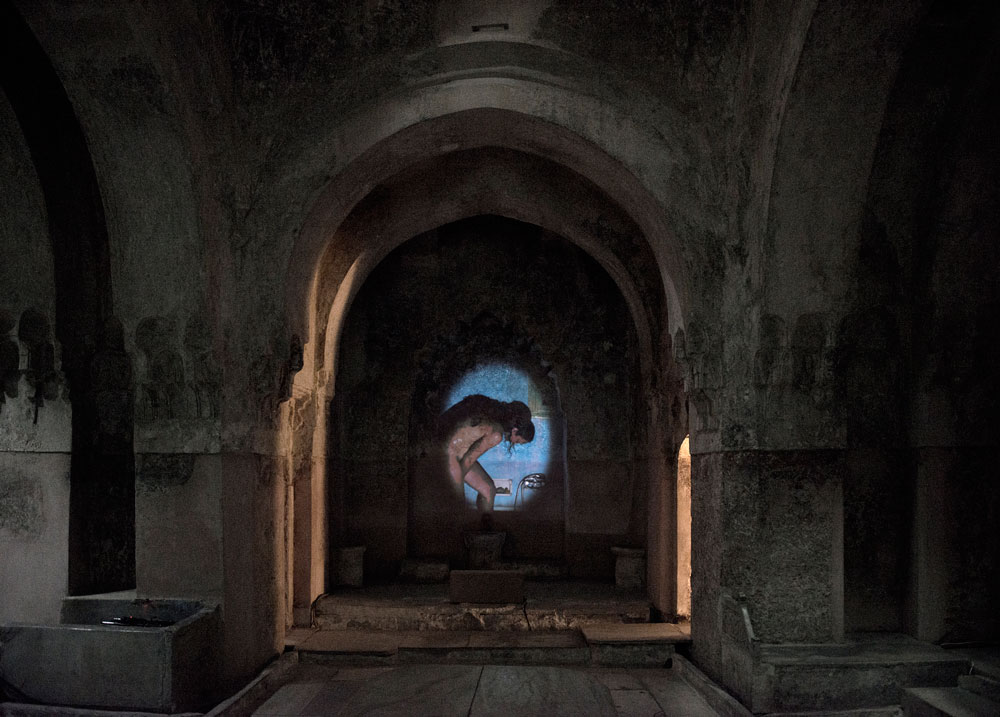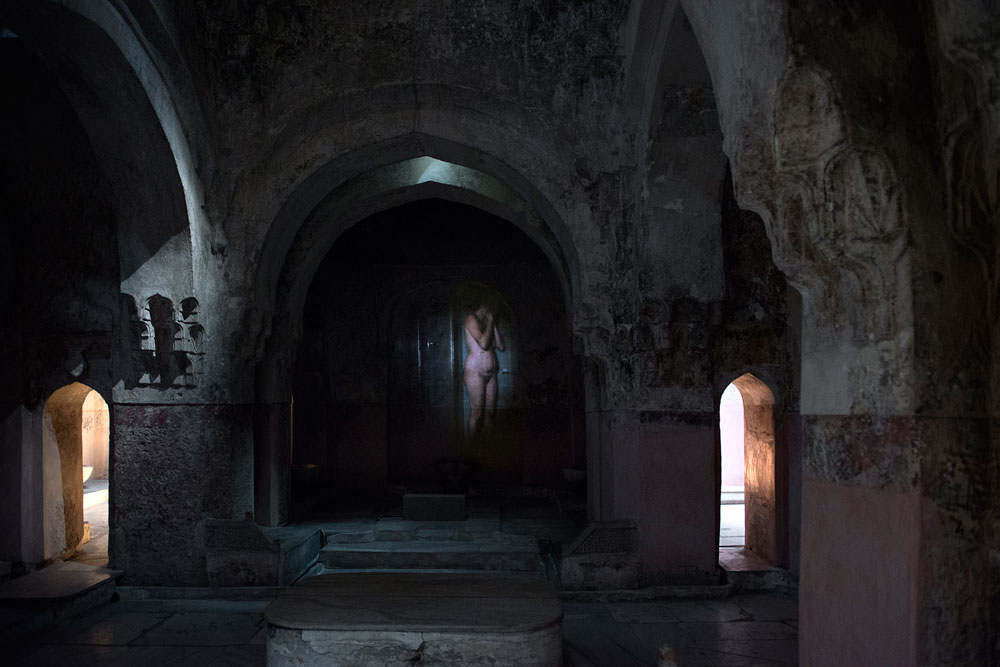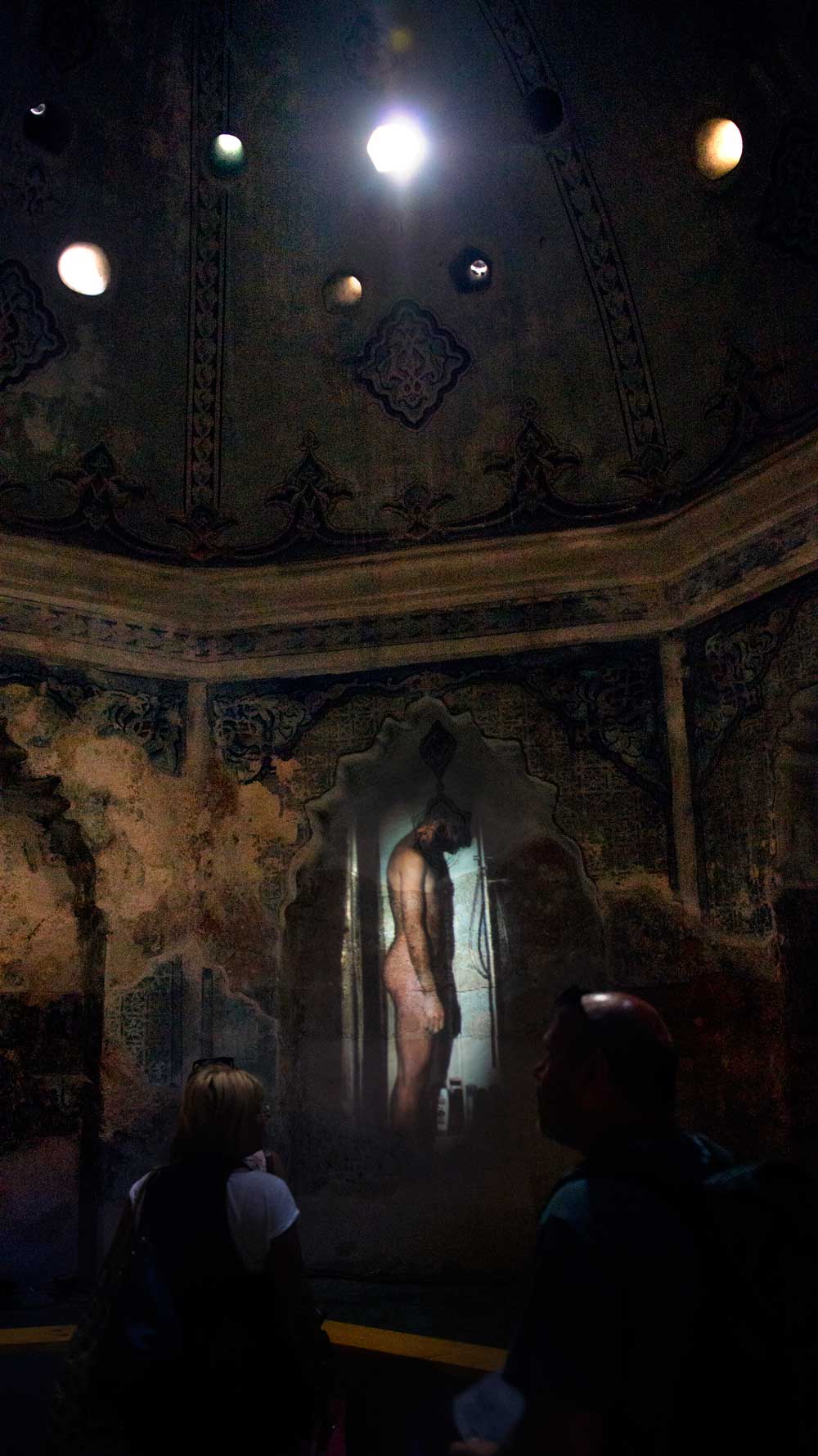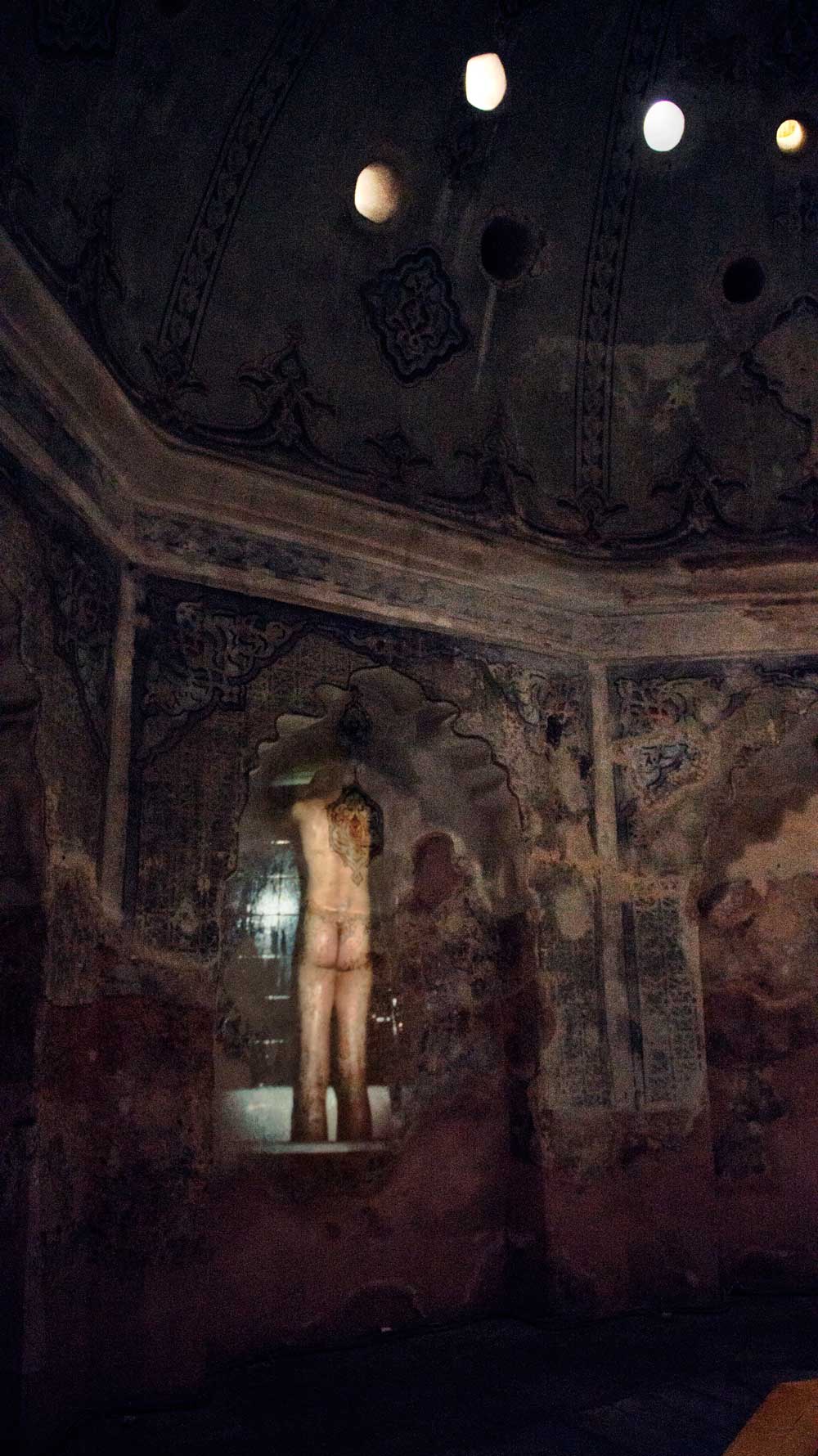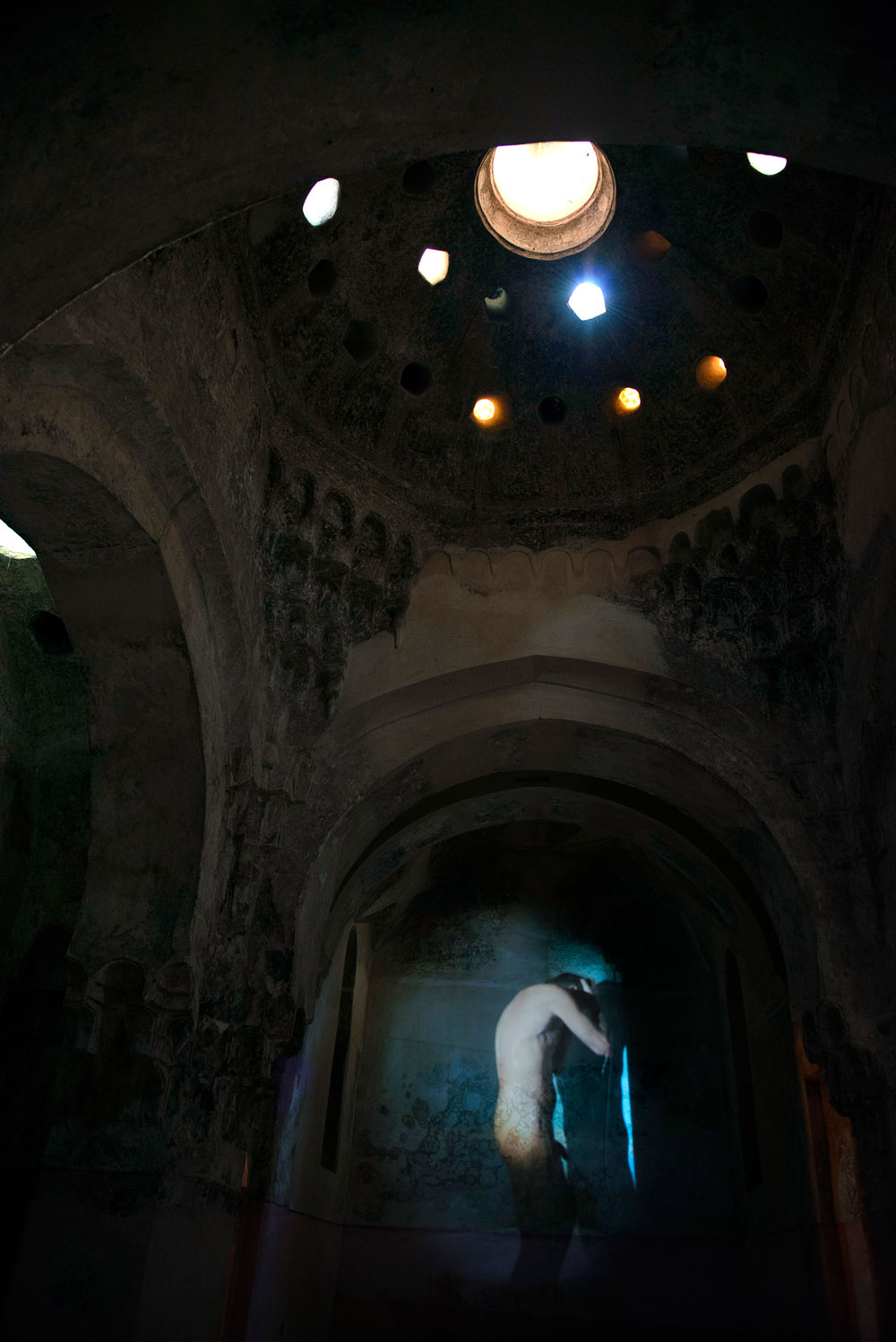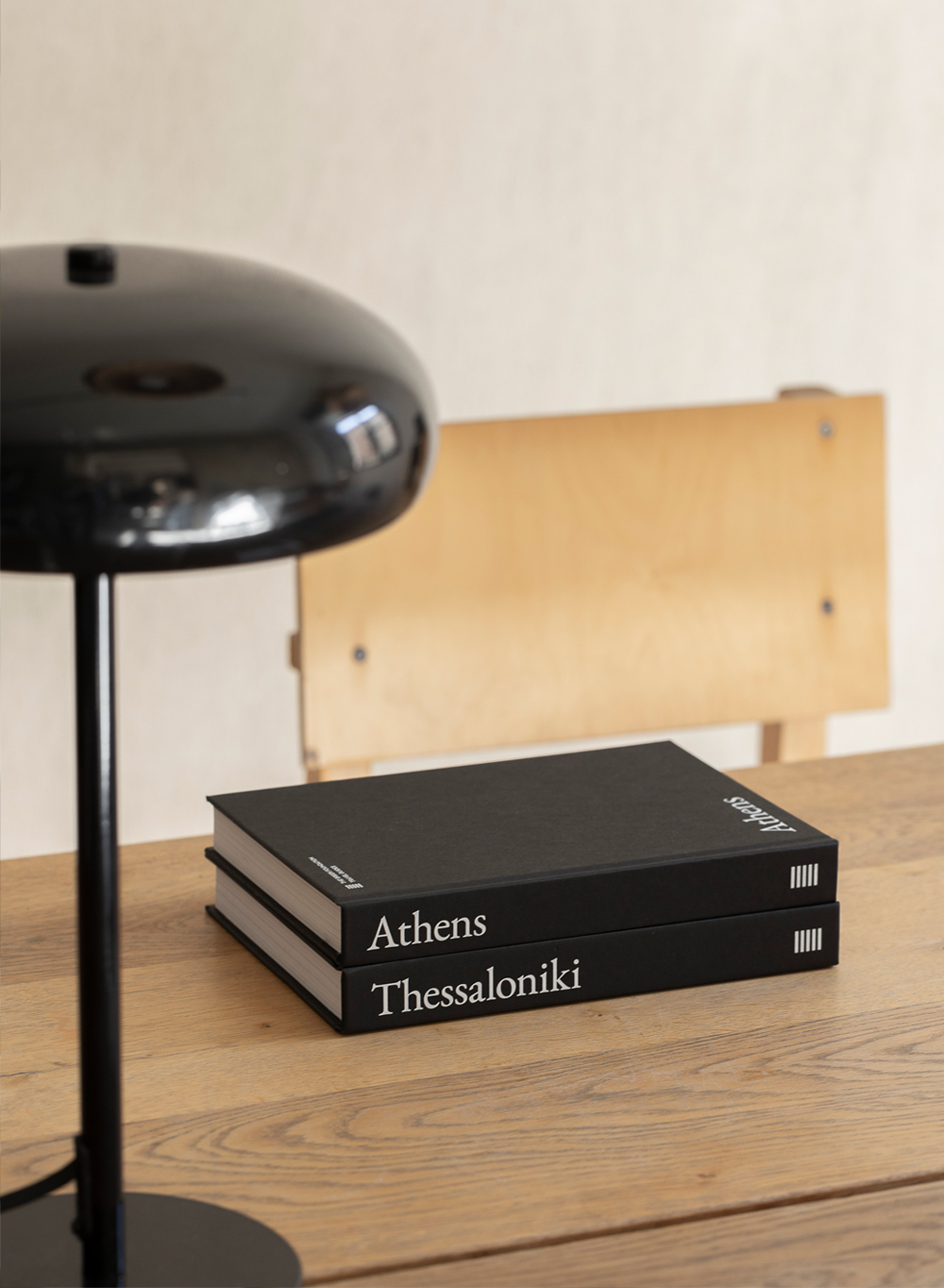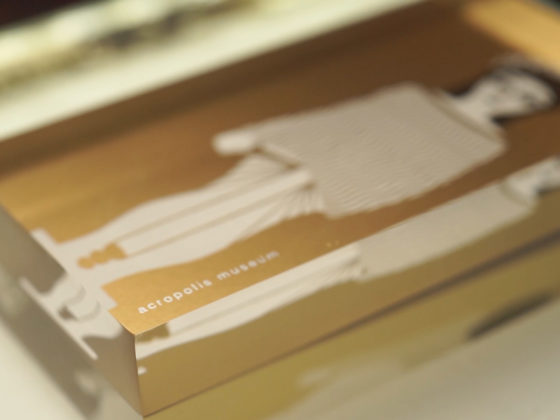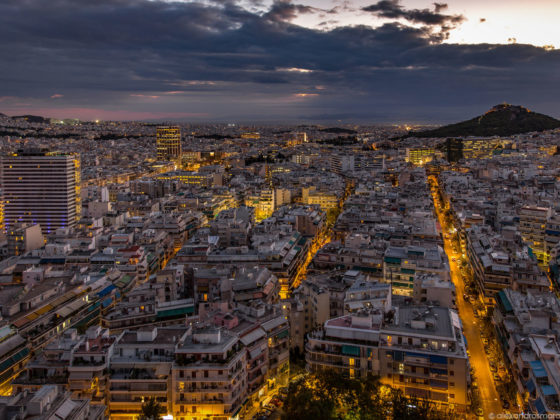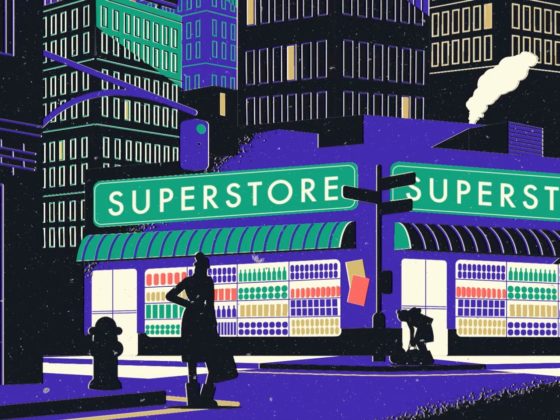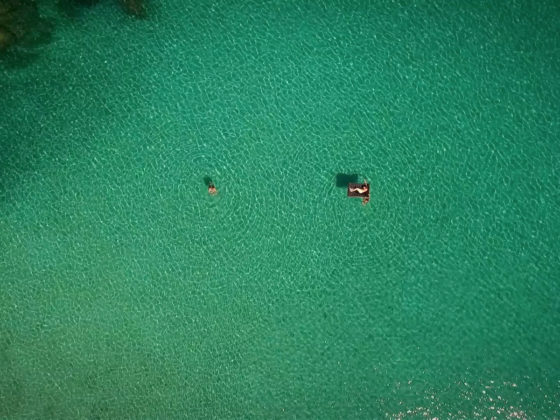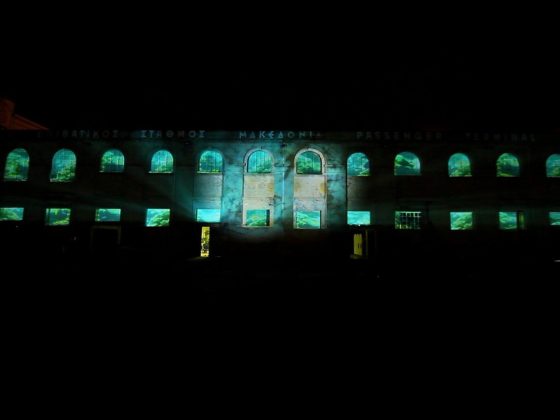The idea of the project was to create a small, temporary shrine in the center of the city dedicated to the body, showing in public the daily private “ritual” of washing. An ode to what is gone, to what changes, to what is alive, to what is human.
The bath, a common, private, everyday practice in life, becomes a hymn to the human body, highlighting its perishable and finite nature and each one’s relationship with it. For this project, a number of people allowed their private moments in the shower to be documented – moments so commonly experienced by all, yet simultaneously so personal.
The work focuses on the body as a witness to the limit of human existence and connects the concept of the bathroom with times of isolation from the world, which makes it a space of reflection and introspection. Effortlessly under the shower, without fear, without shame or guilt, comes a moment of self-awareness, which is nothing more than a purification and conciliation with what we tend to reject, to push aside – what Jung described as the Shadow.
Shadow Atonement was originally designed for the Ottoman monument “Baths of Paradise” (aka Bey Hamam) in Thessaloniki, directly relating to its function as one of the city’s most popular public baths throughout the centuries. The architectural context in which it was presented, the space geometry, the acoustics and the resulting mood comprised an integral part of the artwork. The project was organized by the Museum of Photography in cooperation with the 9th Ephorate of Byzantine Antiquities as part of PhotoBiennale’s Parallel Program.
Maria Mitzali was born in Athens, Greece. Her work has been exhibited in London, Istanbul, Krakow, Oslo, Bucharest, Athens, Rhodes and Thessaloniki.
